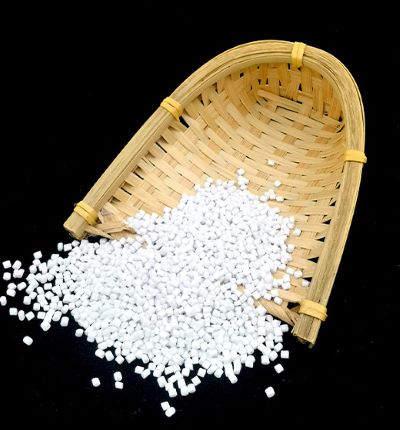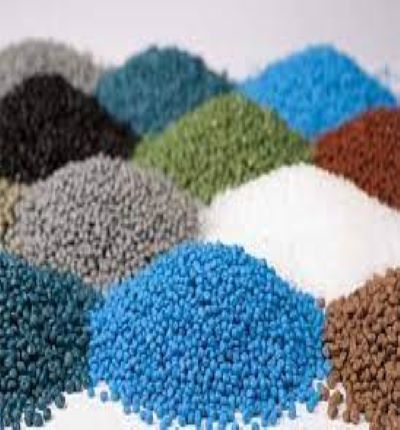Genesis Polymers is a new channel to the North American polymer distribution market, launched by Ravago in November 2013. It offers a broad line of commodity polymers including its own brand of prime-certified resin, SureSpec ®. Genesis Polymers International’s headquarters is in Orlando, Florida.
Buzzword
Markets eight billion pounds of polymers annually
Instamine invites you to learn more about Genesis Polymers!
Genesis Polymers is specialized in PET Procurement, Commercialization & Distribution in Latin America and the Caribbean Market. It commercializes PET in 21 countries.
The Company is part of the Ravago Group, the number one global service provider to the plastic and rubber industries. Founded in 1961, the Ravago Group is the world leader in the distribution, resale and compounding of commodity engineering and specialty plastic & rubber products. Genesis benefits from Ravago’s resources and family-owned culture.
Products List

Poly-ethylene
Polyethylene or polythene (abbreviated PE; the name polyethene or poly(methylene)) is the most commonly produced plastic. It is a polymer, primarily used for packaging (plastic bags, plastic films, geomembranes and containers including bottles, etc.). As of 2017, over 100 million tonnes of polyethylene resins are being produced annually, accounting for 34% of the total plastics market.
Learn morePolyethylene terephthalate
Polyethylene terephthalate (or poly(ethylene terephthalate), PET is the most common thermoplastic polymer resin of the polyester family and is used in fibres for clothing, containers for liquids and foods, and thermoforming for manufacturing, and in combination with glass fibre for engineering resins.
Learn more

Polypropylene
Polypropylene (PP), also known as polypropene, is a thermoplastic polymer used in a wide variety of applications. It is produced via chain-growth polymerization from the monomer propylene.
Learn morePolystyrene
Polystyrene (PS) is a synthetic polymer made from monomers of aromatic hydrocarbon styrene. Polystyrene can be solid or foamed. General-purpose polystyrene is clear, hard, and brittle
Learn more
Poly-ethylene
Polyethylene or polythene (abbreviated PE; the name polyethene or poly(methylene)) is the most commonly produced plastic. It is a polymer, primarily used for packaging (plastic bags, plastic films, geomembranes and containers including bottles, etc.). As of 2017, over 100 million tonnes of polyethylene resins are being produced annually, accounting for 34% of the total plastics market.
Many kinds of polyethylene are known, with most having the chemical formula (C2H4)n. PE is usually a mixture of similar polymers of ethylene, with various values of n. It can be low-density or high-density: low-density polyethylene is extruded[verification needed] using high pressure (1000–5000 atm) and high temperature (520 kelvins), while high-density polyethylene is extruded[verification needed] using low pressure (6–7 atm) and low temperature (333–343 K). Polyethylene is usually thermoplastic, but it can be modified to become thermosetting instead, for example, in cross-linked polyethylene.
Polyethylene terephthalate
Polyethylene terephthalate (or poly(ethylene terephthalate), PET is the most common thermoplastic polymer resin of the polyester family and is used in fibres for clothing, containers for liquids and foods, and thermoforming for manufacturing, and in combination with glass fibre for engineering resins.
In 2016, the annual production of PET was 56 million tons. The biggest application is in fibres (in excess of 60%), with bottle production accounting for about 30% of global demand. In the context of textile applications, PET is referred to by its common name, polyester, whereas the acronym PET is generally used in relation to packaging.[citation needed] Polyester makes up about 18% of world polymer production and is the fourth-most-produced polymer after polyethylene (PE), polypropylene (PP) and polyvinyl chloride (PVC).
Polypropylene
Polypropylene (PP), also known as polypropene, is a thermoplastic polymer used in a wide variety of applications. It is produced via chain-growth polymerization from the monomer propylene.
Polypropylene belongs to the group of polyolefins and is partially crystalline and non-polar. Its properties are similar to polyethylene, but it is slightly harder and more heat resistant. It is a white, mechanically rugged material and has high chemical resistance.
Polypropylene is the second-most widely produced commodity plastic (after polyethylene). In 2019, the global market for polypropylene was worth $126.03 billion. Revenues are expected to exceed US$145 billion by 2019. The sales of this material are forecast to grow at a rate of 5.8% per year until 2021
Polystyrene
Polystyrene (PS) is a synthetic polymer made from monomers of aromatic hydrocarbon styrene. Polystyrene can be solid or foamed. General-purpose polystyrene is clear, hard, and brittle. It is an inexpensive resin per unit weight. It is a poor barrier to oxygen and water vapour and has a relatively low melting point. Polystyrene is one of the most widely used plastics, the scale of its production being several million tonnes per year. Polystyrene can be naturally transparent but can be coloured with colourants. Uses include protective packaging (such as packing peanuts and in the jewel cases used for storage of optical discs such as CDs and occasionally DVDs), containers, lids, bottles, trays, tumblers, disposable cutlery, in the making of models, and as an alternative material for phonograph records.
As a thermoplastic polymer, polystyrene is in a solid (glassy) state at room temperature but flows if heated above about 100 °C, its glass transition temperature. It becomes rigid again when cooled. This temperature behaviour is exploited for extrusion (as in Styrofoam) and also for moulding and vacuum forming since it can be cast into moulds with fine detail.
Browse Products by Industry
- 6 products
- 1 Brands
Documents
Learn more about Genesis Polymers products and browse available documents.
Browse Documents


